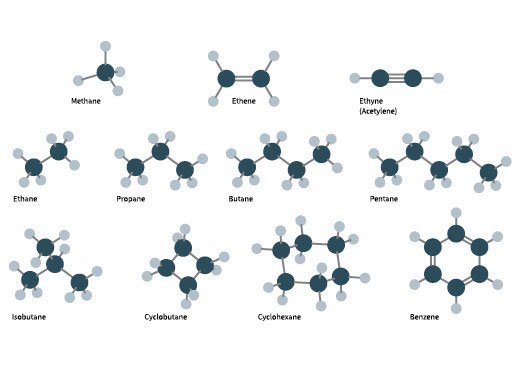What is propane gas: Propane properties, uses, and chemical formula
For the end user who simply wants to grill a delicious steak, heat a home, or operate appliances, propane gas seemingly is a simple, trouble-free, safe, and reliable source of energy. Yet, there are many steps and processes that take place between propane’s extraction as a natural resource and it’s delivery to your residence as a way to power your life.
What is propane?
Propane is a fossil fuel that is often found alongside other gases, such as ethane, methane, butane, and other hydrocarbons. Propane is a byproduct of processing and refining these natural gases and crude oil. It is isolated - sometimes through refrigeration and other times through distillation - and pressurized into liquid form so it’s easier to store and transport. As the liquefied propane gas leaves storage tanks, the pressure drops and it returns to a gaseous form that can be used by appliances and systems.
Chemical formula for propane gas
Chemically speaking, propane is among roughly a dozen alkane gases that are constructed of only carbon and hydrogen atoms in a branch structure. The propane chemical structure, or chemical formula, is three carbon atoms branched with eight hydrogen atoms (C3H8). This atomic makeup of a propane molecule means propane is a “simple” alkane that is clean-burning, with little smoke or odor. This is what makes propane such an effective fuel for in-home applications, such as heaters, appliances, and barbeque grills. It’s a highly efficient and clean source of energy. By comparison, gasoline requires a great deal of refining, blending, and additives to produce a product that is stable and suitable for use in internal combustion engines.

How much energy does propane have?
Each gallon of propane contains more than 91,000 BTUs of energy - a measurement of energy required to raise the temperature of one pound of water by one degree Fahrenheit. The high BTU content of propane makes it a more efficient fuel compared to many other natural gases - and because there’s a robust production and delivery infrastructure across the country, propane is a versatile choice for homes and businesses. The characteristics of propane make it a more versatile option than other fuels such as diesel, kerosene, and natural gas for a variety of uses.
Propane is also a high-octane and low carbon fuel source, making it an increasingly popular choice for use in high-mileage vehicles. Propane is mixed with small amounts of other gases, such as propylene and butane or butylene, for use in vehicles and known as HD-5. The propane is stored onboard, with a 150 pounds per square inch of pressure. This creates an energy-dense fuel that can be used in engines that require higher engine compression ratios, while avoiding some of the maintenance issues found in traditional gasoline engines with high mileage. Because propane releases as vapor if there’s a leak, there’s no concern for ground or water pollution. As a clean-burning fuel, it’s also a top choice for consumers concerned about pollution and emissions.
Where does propane come from? How is it stored?
The bulk of propane used in America comes from domestic production of oil and gas. Once it’s extracted from the ground, the product is transported to a crude oil refinery or gas plant, where the various gases, including propane, are isolated. Since propane is nearly odorless and colorless, odor is added to alert users of any potential leaks. The gas is also converted into liquid propane by pressurizing the gas to get the propane temperature below its boiling point of -45℉, to allow for effective storage and transportation.
From there it’s typically moved to large underground storage caverns that are connected to an extensive pipeline network that allows for transportation to retail outlets. Home and business owners then receive the product from companies like Ferrellgas, which deliver propane to on-site propane tanks. While most of North America’s propane comes from domestic production, processors export more than 10 billion gallons of propane each year.
Contact Ferrellgas for your propane needs
For nearly 100 years, propane has been used as a safe, reliable, and clean fuel alternative. Thanks to the development of an extensive processing and delivery infrastructure, as well as advances in safety technology, propane remains among the best choices to power your home, appliances, and fleets.
For all your propane needs, get in touch with your local Ferrellgas office where one of our experts can give you today’s propane price, set you up with propane service, or help schedule your next delivery.
CATEGORIES
Archives
- Summer 2025
- Spring 2025
- Winter 2024
- Fall 2024
- Summer 2024
- Spring 2024
- Winter 2023
- Fall 2023
- Summer 2023
- Spring 2023
- Winter 2022
- Fall 2022
- Summer 2022
- Spring 2022
- Winter 2021
- Fall 2021
- Summer 2021
- Spring 2021
- Winter 2020
- Fall 2020
- Summer 2020
- Spring 2020
- Winter 2019
- Fall 2019
- Summer 2019
- Spring 2019
- Winter 2018
- Fall 2018
- Summer 2018
- Spring 2018
- Winter 2017
